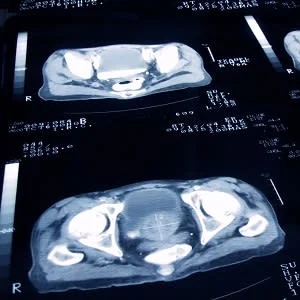Using an AI-based software, radiologists were able to reduce their read times by at least 50% when interpreting multiparametric MRI (mpMRI) scans of patients with suspected prostate cancer.
Sixteen radiologists from four hospitals participated in the reading. 480 multiparametric MRI images with a total of 349 csPCa lesions in 180 cases were used.
The radiologists interpreted scans both with and without use of the software; those scans were read again four weeks later in switched mode. The team assessed the median reading time and diagnostic confidence, and compared the mean diagnostic performance using sensitivity and specificity on lesion level and patient level.
According to the results of this research, radiologists were able to cut their read times from 423 to 185 seconds per exam when using artificial intelligence software to interpret multiparametric MRI scans.
Additionally, use of the AI software resulted in improved sensitivity and specificity. On lesion level, the software improved the sensitivity from 40.1% to 59.0%, and on patient level, it improved the specificity from 57.7% to 71.7% whilst preserving the sensitivity. AI use additionally cut reading times by 56.3% and improved diagnostic confidence scores from 3.9 to 4.3.
CAD systems can remarkably boost the performance of less-experienced readers to attain expert-level performance. The participants’ diagnostic experience varied widely (1- to 5-year experience), and each reader received cases from both their hospital and other hospitals; therefore, the data are heterogeneous and unfamiliar.
Overall, diagnostic efficacy significantly improved by using AI, indicating that its use has substantial generalisation capability.
The study authors concluded, “the AI software, when tested in high-quality, real-world datasets, improves the diagnostic performance of radiologists by reducing the detection of false positive patients and also improving reading and reporting times and diagnostic confidence”.
Source: Insights into Imaging
Image Source: iStock
References:
Sun Z et al. (2023) A multicenter study of artificial intelligence-aided software for detecting visible clinically significant prostate cancer on mpMRI. Insights Imaging 14, 72.






